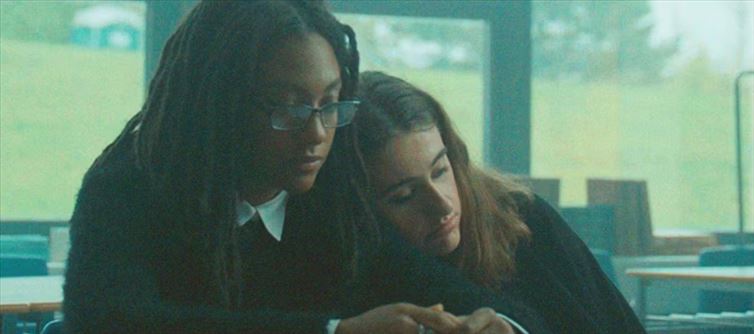
Best friends Carrie (Madeleine Grey DeFreece) and Hannah (Rachel Sennott) find themselves attending both her burial and a "teen talk-back" at their neighbourhood synagogue after a classmate passes away. Hannah is more concerned with catching Tristan (Daniel Taveras), her longtime obsession, than with helping the various kids handle their ostensible pain. In a startling act of ignorance, Hannah asks Carrie to kiss her so she can judge her abilities. Hannah views it as a fleeting moment, while Carrie sees it as the catalyst for a shocking disclosure that colours the remainder of the painfully awkward talk-back.
Tahara is entirely set in a synagogue, which ordinarily runs the risk of feeling overly plodding. Peace, however, combats this early on by utilising original visual gimmicks. Peace uses inventive techniques to effectively convey the thoughts and feelings of the girls, such as using animation and enlarging the boxy aspect ratio during Carrie's moments of self-discovery. Tahara's Carrie receives more introspective treatment than either of its two main characters, which may frustrate viewers who want to know more about Hannah. It makes fitting that Carrie's trip would take centre stage above everyone others given that she is the de facto protagonist in this story.




 click and follow Indiaherald WhatsApp channel
click and follow Indiaherald WhatsApp channel